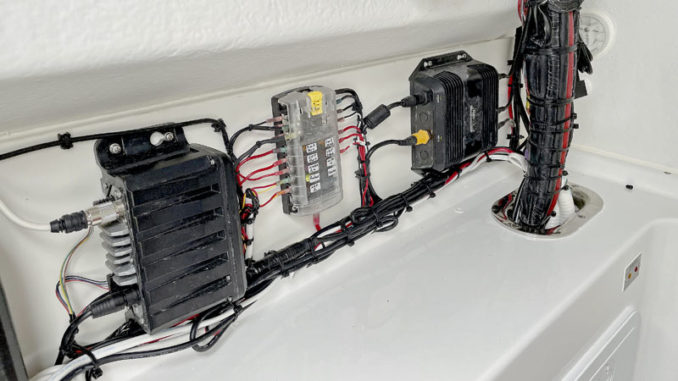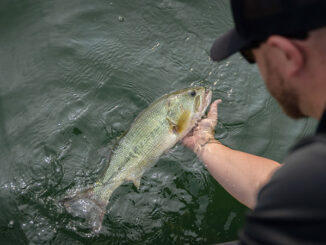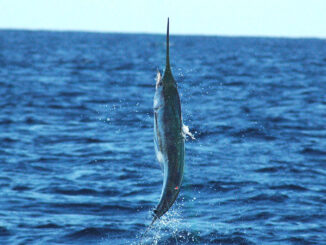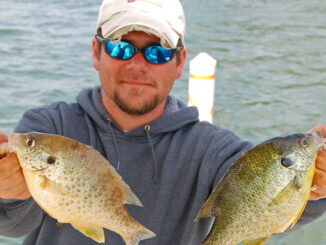
Maintain and learn your boat’s electronics in time for spring
January can be a depressing month for saltwater anglers in the Carolinas. Sure, bluebird days can occur, allowing us to sneak out on the water. But the vast majority of the species that we target here are in short supply compared to the warmer months. The days are short and can be brutally cold for weeks at a time. Using the forced break to elevate your electronics game is one key to avoiding winter depression. And it helps you stay on top of your game.
Having both fished for a living and been a seller/installer of marine electronics, I am astounded at how much technology has advanced in this field in the last 10 to 15 years. When I started charter fishing, Loran-C was being quickly phased out by GPS systems. Those GPS units represented a quantum leap forward in the industry. But compared with what we have now, they were extremely clunky and cumbersome.
Now, a fairly inexpensive GPS antenna has 32 channels, allowing it to be infinitely more precise and faster than a generation ago. NMEA 2000 has become the standard in networking for on board systems. And it is much more user friendly than the old NMEA 0183 devices.
Doing it yourself is much easier these days
Building your own NMEA 2000 networked system that allows your chartplotter, radar unit, autopilot, bottom machine, engine gauges, VHF, and even stereo to all “talk” to each other can be accomplished by even a novice do-it-yourselfer, just by following the manual. This was not even close to the case with the NMEA 0183 devices.
Perhaps the most impressive advance, however, has been that of transducer technology. The old transducer “cone” still exists. But it has been heavily augmented with units that scan to the side or scan down in much greater detail. CHIRP technology allows the use of multiple frequencies at the same time for better bottom detail, especially in deep water. At the end of the day, fish are in more danger than ever.
If you have an older boat and are considering an electronics upgrade, winter is definitely the time to pull the trigger. This past season’s units are on sale by this point. As always, do your research before you buy. If the next year’s upgrade is simply a change in cartography, it might be a good time to save hundreds of dollars. However, if the change to a new unit means a faster processor or more sonar options, then it might make sense to go ahead and spend extra for the latest model.
Check those connections now
If you are having a shop or your dealership install the unit, the wait time is going to be a lot less in January than it will be in April. Come spring, good installers can get a month or two behind due to high volume. If you’re doing it yourself, you can take your time and not fret about losing time on the water during the upgrade.
Even if you are not in the market to upgrade, take the opportunity to go through the systems that are in place.Make sure that you are set up for success for the season.
Check your electrical connections and fuses to make sure no corrosion will knock out your unit when you least expect it. If you see green on the fuse block, clean it all and use dielectric grease to keep it from building back up.
Check your cables and make sure they are secured neatly inside the console and the bilge so they don’t work themselves loose and get damaged.
Are your waypoints backed up?
Back up the waypoints in your chartplotter onto an SD card or even your phone, just in case you ever need to reinstall them. Most units also take periodic software upgrades. These can usually be downloaded for free from the product’s website. You want everything shipshape and ready when the weather gets right.
Finally, the winter doldrums present the best opportunity for a fisherman to fully learn the capabilities of their electronics.
Just like my cell phone, I used only about ten percent of my electronics’ potential.
Derek Treffinger owns Fully Loaded Marine in Shallotte, NC (704-616-1615). He specializes in installing new electronics configurations in boats of all sizes. Part of his business is teaching his customers how to use their new systems most efficiently. This helps them catch more fish.
Treffinger is planning an electronics class where attendees can learn at a display stand, and also on the water. That’s a great way to jump start your fishing season.
Don’t let the winter’s window of opportunity pass you by. Get ahead on your electronics game. It will serve you well when the weather warms and it’s time to get the boat dirty.




Be the first to comment